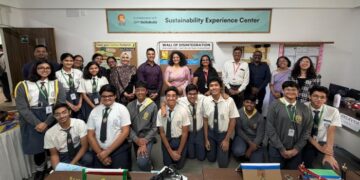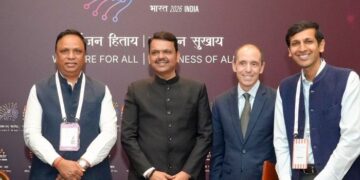A global comparison of school status of India versus other countries since Covid hit, reveals that while schools were mostly shut in 2020 (first half), many countries kept schools largely open through subsequent waves. For instance in 2021, many countries had schools operational in-person for large parts of the year (including Japan, South Africa, US, UK, Portugal). This is despite 2-8x higher disease incidence or cases per million population compared to India. In fact, many nations prioritized keeping schools open vis-a-vis malls, shops, gyms (e.g., France, UK, Canada, Singapore). Many-a-time this was made possible by decentralizing the school opening/closing decision to a school/county level to avoid mass school closures.
This is part of observations in a report titled “India Needs To Learn – A Case for Keeping Schools Open” by Boston Consulting Group (BCG) and Teach for India on how other countries and some Indian states have dealt with continuing education through COVID. The report released on Jan 25 also discusses imperatives for India to build back better.
Seema Bansal (Partner & Director, BCG) says,” Globally the extent of loss around learning has been staggering, and in India the digital divide amongst urban and rural students has been extensive. The need of the hour is to pivot to a mindset where schools are the “last to close and first to open” in any future waves of the pandemic or other exigencies (for e.g., pollution in North India) – as also successfully demonstrated by many other countries.”
The report also explores public health arguments which indicate low school re-opening risk, driven by multiple factors. First, transmission and severity of Covid in children is low. It was observed that children had 3-6x lower incidence and 17x+ lower fatality compared to adults. Second, despite school re-opening across select Indian states in mid-2021, cases didn’t spike (e.g., Punjab, Maharashtra etc.) hinting at low transmission in schools. Third, increasing vaccination penetration also strengthens the case for re-opening schools, as it will likely lead to lower hospitalization and fatality (more so with Omicron compared to earlier variants, basis early data from other countries).
One key issue with India’s centralized decision making has been that schools in districts with very limited spread, were shut due to mass closures (at state level). For instance, in late December 2021, ~70% districts in India had <25 daily cases. However, with the approaching third wave, most states took the decision to shut schools state-wide.
“In addition to bridging learning losses, school re-opening will help address other associated implications of ~2 years of school closures. For instance, ~35% children didn’t get midday meals during school closures as per a recent study. If this continues for a prolonged period, it could potentially lead to higher burden of malnourished children in India (an issue the country already struggles with). School re-opening will also help address other challenges which saw a spike over the last ~2 years (including poor socio-emotional health and child labour),” added Diksha Bahl (Consultant, BCG).
The report lays out the 4 key imperatives for the Indian education system, wherein it’s critical to pivot to a philosophy of schools being “last to close and first to open”:
- Decentralize school re-opening and closures to a granular level (e.g., ward, Gram Panchayat, school level) with clearly defined norms
- Offer blended learning construct through the year i.e. in addition to offline, continue online education
- Strengthen testing (e.g., weekly antigen tests), vaccination (e.g., mandatory for school staff), safety protocol (e.g., masking etc.) and ventilation (e.g., leverage outdoors spaces, monitor ventilation)
- Prepare to bridge learning gaps caused by pandemic-driven school closures, and allocate sufficient resources for the same
Finally, as children/students come back to school after ~2 full years, India needs a massive multi-year catch up program for them (a 30-day or 100-day program may not suffice). This will require strong resource allocation, “mission-mode” focus and resilience planning to build back better.
Shaheen Mistri (CEO, Teach for India) says “The 650-odd days of severely disrupted learning, with schools nation-wide largely closed for all children, have led to a task ahead of colossal proportions. If we are to avert a catastrophe that will permanently damage this school-going generation of a bright future, we will need to invest heavily, over the next several years, to not just close the many gaps the pandemic has created but to use this as an opportunity to reimagine a new, fundamentally different education system – where continuous learning is more important than board exams, where children come to school to develop the skills and values to live their greatest lives and uplift the lives of others.”













